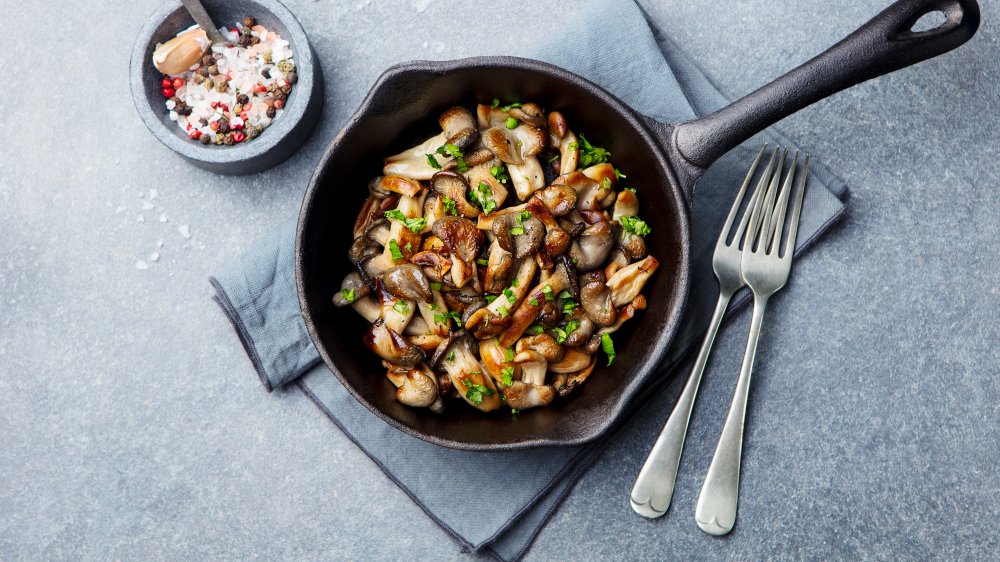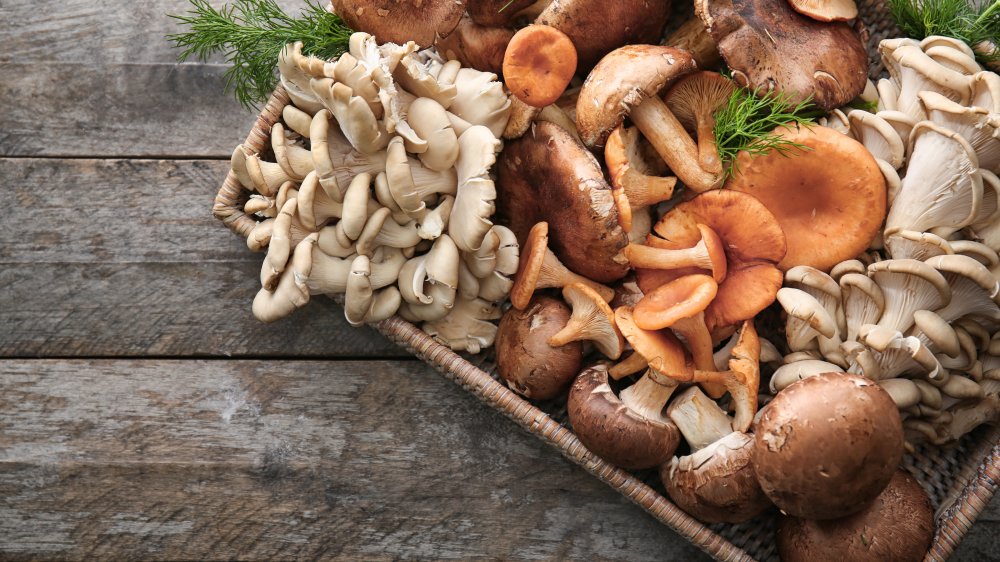The Real Reason You Shouldn't Fry Your Mushrooms
Love 'em or hate 'em, mushrooms are a fungus to be reckoned with. According to Food Dive, consumer demand may double in less than a decade, predicted to grow from a $34.1 billion global market in 2015 to $69.3 billion by the close of 2024, thanks to more people becoming interested in both functional foods as well as food as medicine.
And it's true that mushrooms have amazing health benefits: They're low in calories and sodium; fat- and cholesterol-free; rich sources of the antioxidant selenium; and loaded with fiber, B vitamins, copper, and potassium (via Healthline).
But, assuming most eaters aren't chowing down on raw caps and stems, those who look to mushrooms as a health food should keep in mind that some of those benefits can be reduced (or boosted), depending on the particular cooking process used. To prove this, a group of Spain-based researchers at the Mushroom Technological Research Center of La Rioja gathered together in 2017 to examine just how "mushrooms' composition, antioxidant capacity, and nutritional content" is impacted by various cooking methods — and their results may surprise you (via Time).
Cooking mushrooms can alter their health benefits
ScienceDaily notes that the researchers experimented with various cooking methods — boiling, microwaving, grilling, and deep-frying — on four common mushroom varieties: white button, shiitake, oyster, and king oyster. They were cooked and freeze-dried, then compared with raw samples to analyze "proximate composition, beta-glucans content, and antioxidant activity." Ultimately, "frying induced more severe losses in protein, ash, and carbohydrates content," while increasing fat and calorie counts and causing a "significant decrease" in antioxidant levels.
In other words, according to the study, published in the International Journal of Food Sciences and Nutrition, cooking methods like frying and boiling actually leach overall nutrition from mushrooms (via Medical Daily). On the other hand, grilling and microwaving mushrooms were found to increase antioxidant activity, especially when grilling with olive oil.
As reported in Time, one of the researchers, Irene Roncero, noted that frying and boiling likely led to protein and antioxidant losses because of the "leaching of soluble substances in the water or in the oil," leading to a significant impact on the ultimate nutritional value. The takeaway: If you're looking to reap the maximum health benefits from 'shroom consumption, choose your cooking method wisely.

